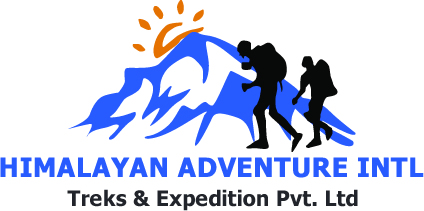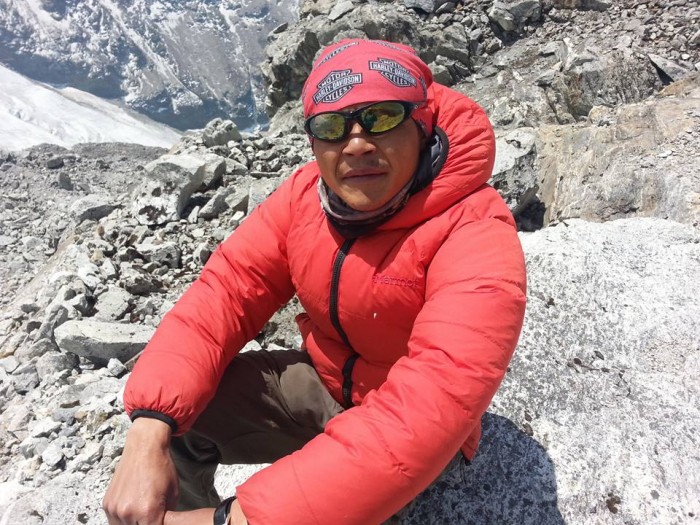Island Peak, officially known as Imja Tse, is one of Nepal’s most iconic trekking peaks, standing proudly at 6,189 meters. Situated in the heart of the Khumbu region, Island Peak offers a perfect blend of cultural exploration, trekking adventure, and mountaineering challenge. For both beginner and experienced climbers, Island Peak climbing is an excellent introduction to Himalayan expedition-style climbing.
Organized by Himalayan Adventure International Treks, this journey not only lets you scale an impressive Himalayan summit but also immerses you in the breathtaking beauty of the Everest region. Whether you're climbing Island Peak from Chhukung or combining it with Everest Base Camp (EBC) or even Mera Peak, this article provides a comprehensive insight into everything you need to know.
Why Climb Island Peak?
Island Peak appears like an island in a sea of ice when viewed from Dingboche — hence the name. The peak was first climbed in 1953 as part of a training expedition by the British team preparing for Everest. Today, it remains a popular choice for those looking to test their high-altitude mountaineering skills with a non-technical, yet physically demanding climb.
Island Peak Climbing from Chhukung
Most climbers approach Island Peak climbing from Chhukung, a small village nestled at 4,730 meters. Chhukung serves as the ideal acclimatization and staging point before heading to Island Peak Base Camp. The Chhukung to Island Peak Base Camp distance is approximately 4.5 km, which can take around 3–4 hours to cover on foot depending on your pace and acclimatization status.
This section of the trek crosses rocky terrains, glacial moraines, and sparse high-altitude vegetation, giving you a taste of the real Himalayan wilderness.
Island Peak Climbing Itinerary
Here’s a sample Island Peak climbing itinerary designed by Himalayan Adventure International Treks:
Day 1: Arrival in Kathmandu (1,400m)
Arrive at Tribhuvan International Airport and transfer to your hotel. Briefing and gear check with our climbing team.
Day 2: Fly to Lukla (2,860m) & Trek to Phakding (2,610m)
A short but scenic flight to Lukla followed by a gentle trek to Phakding.
Day 3: Trek to Namche Bazaar (3,440m)
Cross suspension bridges and enter Sagarmatha National Park. Gradual climb to the vibrant Sherpa town of Namche.
Day 4: Acclimatization Day in Namche
A day hike to Hotel Everest View or Khumjung for acclimatization.
Day 5: Trek to Tengboche (3,867m)
Visit the famous Tengboche Monastery with stunning views of Ama Dablam.
Day 6: Trek to Dingboche (4,410m)
Day 7: Trek to Chhukung (4,730m)
Start preparing mentally and physically for your summit ahead.
Day 8: Acclimatization Day in Chhukung
Optional hike to Chhukung Ri (5,550m).
Day 9: Trek to Island Peak Base Camp (5,200m)
Chhukung to Island Peak Base Camp distance is about 4.5 km and takes 3–4 hours.
Day 10: Summit Day (6,189m) & Return to Chhukung
Begin early (2–3 AM). The climb includes glacier travel, ladder crossings, and a steep headwall before the summit ridge. Return to Chhukung for the night.
Day 11–13: Trek back to Lukla
Day 14: Fly to Kathmandu
Is Island Peak Hard to Climb?
So, is Island Peak hard to climb? The answer depends on your fitness and experience. While it's not a technical climb, the altitude, crevasse crossings, and steep headwall near the summit can be challenging.
Climbers must be comfortable using crampons, fixed ropes, ice axes, and harnesses. Pre-expedition training is highly recommended. However, with proper acclimatization, experienced guides, and support from Himalayan Adventure International Treks, the peak is well within reach of fit adventurers.
Island Peak Permit Cost
Climbing a trekking peak in Nepal requires a permit issued by the Nepal Mountaineering Association (NMA). The Island Peak permit cost varies by season:
Additional costs include Sagarmatha National Park entry (USD 30) and a local Pasang Lhamu Rural Municipality permit (USD 20).
So, how much is the peak climbing permit in total? Depending on the season, it ranges from USD 120 to USD 300 per person including all necessary fees.
How Much Does It Cost to Climb the Island Peak?
If you’re wondering how much does it cost to climb the Island Peak, here’s a breakdown:
Island Peak Climbing Package Cost with Himalayan Adventure International Treks:
Typical 14–16 day all-inclusive package: USD 2,300 – USD 2,700 per person.
Cost Inclusions:
-
Domestic flights (Kathmandu–Lukla–Kathmandu)
-
Climbing permits and park fees
-
Accommodation in Kathmandu and teahouses during the trek
-
Tented camp at Base Camp
-
Climbing guide, trekking guide, and porters
-
Group climbing equipment (ropes, tents, kitchenware)
-
Meals during trek and climbing
Not Included:
Island Peak Deaths: Is It Safe?
Island Peak has a relatively low fatality rate compared to 7,000m and 8,000m peaks. However, any high-altitude adventure comes with risks. Island Peak deaths are rare but can occur due to:
Himalayan Adventure International Treks takes safety seriously with proper acclimatization days, experienced climbing Sherpas, satellite communication, and emergency evacuation plans. With responsible guiding and preparation, Island Peak is considered one of the safest trekking peaks in Nepal.
EBC with Island Peak Climbing
A popular way to acclimatize and add value to your journey is to combine EBC with Island Peak climbing. This itinerary gives you the once-in-a-lifetime chance to reach Everest Base Camp (5,364m) before your summit attempt.
Benefits:
Duration: 18–21 days
Cost: USD 2,800 – USD 3,200 (all-inclusive with permits, guides, gear, and flights)
Comparing Costs: Island Peak vs. Other Popular Peaks
If you’re still unsure which trekking peak to choose, here’s how Island Peak stacks up against others:
| Peak |
Height (m) |
Difficulty |
Typical Cost (USD) |
Permit Cost (Spring) |
| Island Peak |
6,189 |
Moderate to Hard |
2,300–2,700 |
250 |
| Mera Peak |
6,476 |
Moderate |
2,400–2,900 |
250 |
| Lobuche East |
6,119 |
Hard |
2,200–2,600 |
250 |
| Yala Peak |
5,520 |
Easy |
1,200–1,600 |
70 |
| Pisang Peak |
6,091 |
Moderate |
2,200–2,800 |
250 |
Which Is the Cheapest Peak to Climb in Nepal?
If budget is your concern, then Yala Peak is one of the cheapest peaks to climb in Nepal with costs starting around USD 1,200. However, it’s also less challenging and lower in altitude.
Island Peak, by comparison, offers a more rewarding Himalayan climbing experience with higher elevation and stunning panoramic views — making it worth the extra investment.
Why Choose Himalayan Adventure International Treks?
Himalayan Adventure International Treks is a trusted name in Nepal’s mountaineering and trekking scene. Here’s why you should climb with us:
-
Experienced Team: Our certified guides and Sherpas have summited Island Peak multiple times and prioritize your safety.
-
Customized Itineraries: We offer flexible options like combining Island Peak with EBC or Mera Peak.
-
All-Inclusive Packages: No hidden fees — from Kathmandu hotels to climbing permits, we cover everything.
-
Focus on Safety: Pulse oximeters, satellite phones, and emergency oxygen are standard on our climbs.
-
Sustainable Tourism: We practice eco-friendly trekking and support local communities through our partner NGO, Himalayan Helping Hands.
Island Peak is not just a climb — it's a journey through the heart of the Everest region, filled with culture, adventure, and personal triumph. Whether you're trekking through the bustling streets of Namche Bazaar or standing on the summit surrounded by giants like Lhotse and Ama Dablam, Island Peak offers one of the most unforgettable experiences in the Himalayas.
With comprehensive support from Himalayan Adventure International Treks, your dream of climbing a Himalayan peak is closer than ever. From Chhukung to Island Peak Base Camp, through challenges and triumphs, we are with you every step of the way.
Ready to conquer Island Peak?
📩 Contact Himalayan Adventure International Treks today to start planning your expedition.

 Plan Your Trip Now
Plan Your Trip Now 






